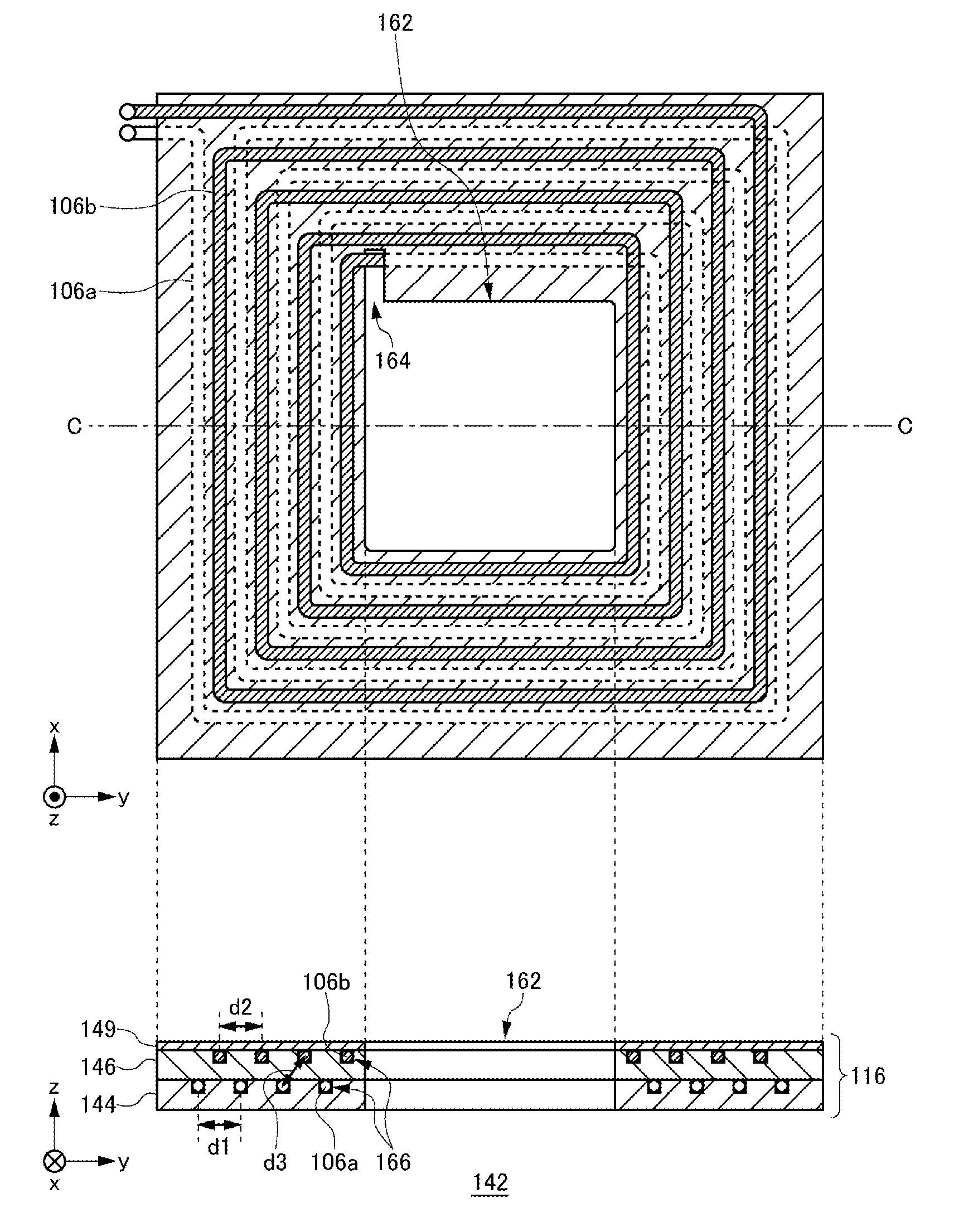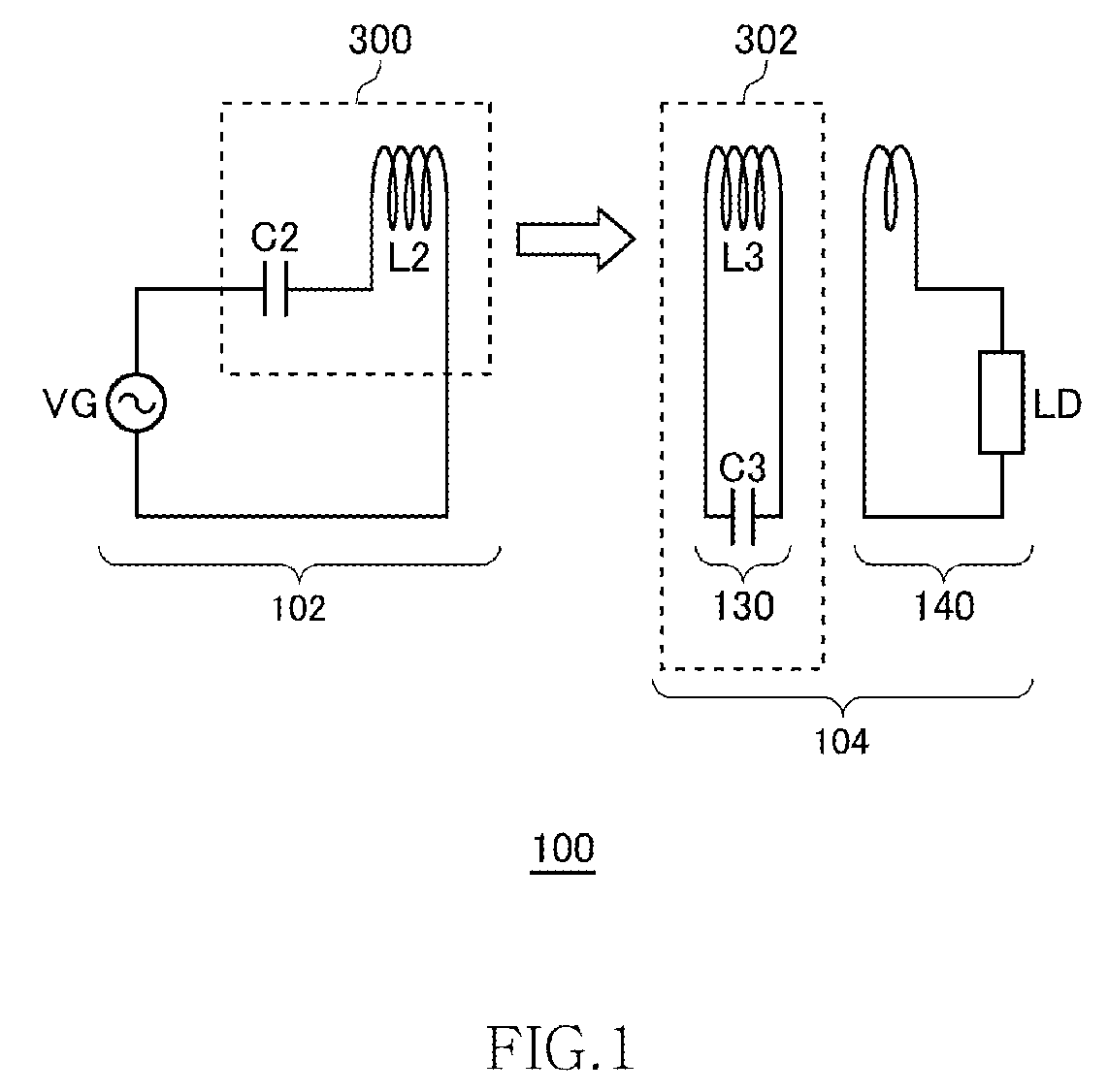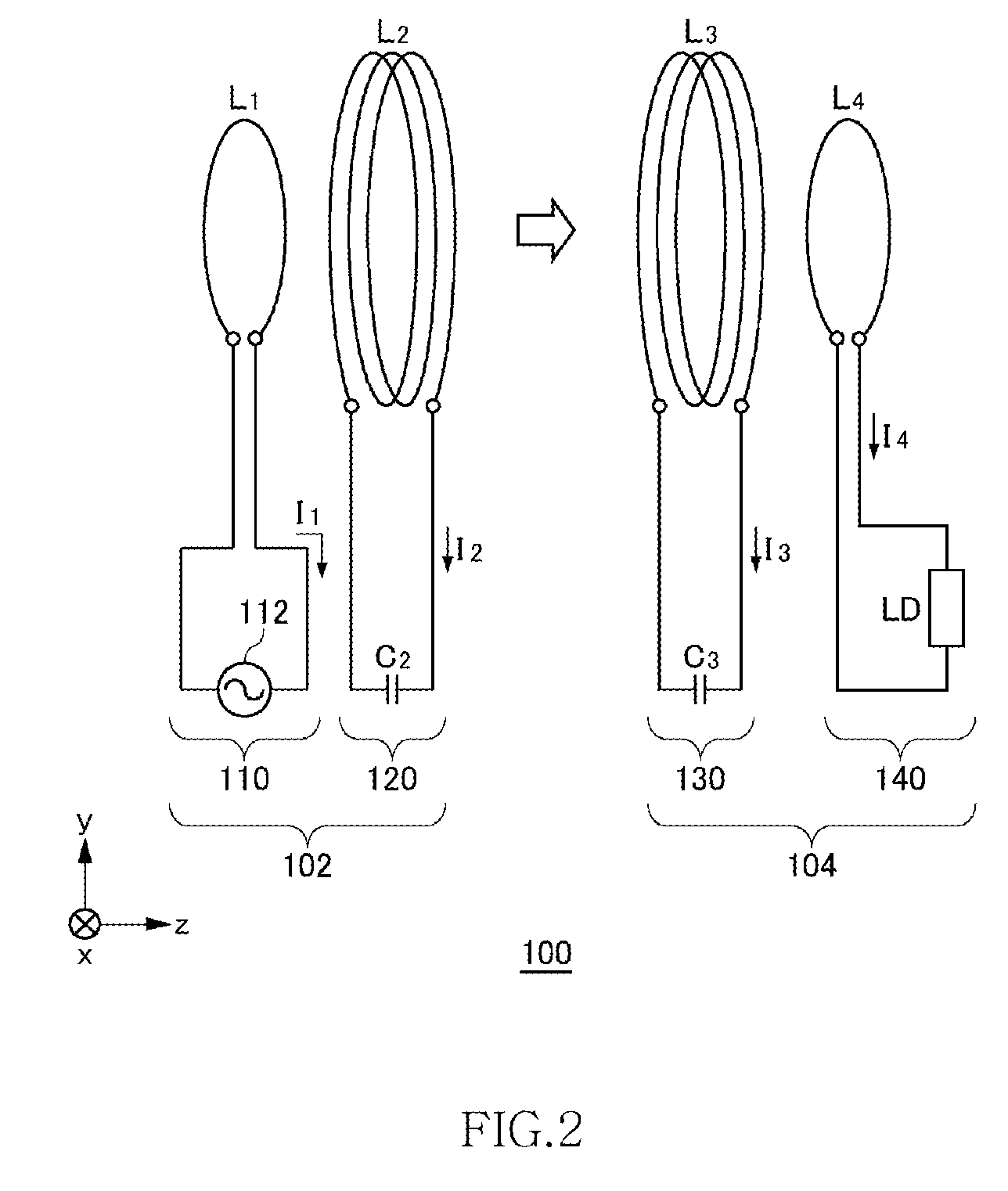Wireless power feeder, wireless power receiver, and wireless power transmission system
a technology of wireless power transmission system and wireless power feeder, which is applied in the direction of transmission, transformer, inductance, etc., can solve the problems of degrading resonance characteristics, increasing and not being able to feed big electric power, so as to achieve the effect of suppressing the size of the coil and increasing the number of windings
- Summary
- Abstract
- Description
- Claims
- Application Information
AI Technical Summary
Benefits of technology
Problems solved by technology
Method used
Image
Examples
first embodiment
[First Embodiment]
[0048]FIG. 1 is a view illustrating operation principle of a wireless power transmission system 100 according to the first embodiment. The wireless power transmission system 100 in the first embodiment includes a wireless power feeder 102 and a wireless power receiver 104. The wireless power feeder 102 includes a power feeding LC resonance circuit 300. The wireless power receiver 104 includes a receiving coil circuit 130 and a loading circuit 140. A power receiving LC resonance circuit 302 is formed by the receiving coil circuit 130.
[0049]The power feeding LC resonance circuit 300 includes a capacitor C2 and a feeding coil L2. The power receiving LC resonance circuit 302 includes a capacitor C3 and a receiving coil L3. The values of the capacitor C2, feeding coil L2, capacitor C3, and receiving coil L3 are set such that the resonance frequencies of the feeding LC resonance circuit 300 and receiving LC resonance circuit 302 coincide with each other in a state where ...
second embodiment
[Second Embodiment]
[0083]FIG. 14 is a view illustrating operation principle of the wireless power transmission system 100 according to a second embodiment. As in the case of the first embodiment, the wireless power transmission system 100 according to the second embodiment includes the wireless power feeder 102 and wireless power receiver 104. However, although the wireless power receiver 104 includes the power receiving LC resonance circuit 302, the wireless power feeder 102 does not include the power feeding LC resonance circuit 300. That is, the feeding coil L2 does not constitute a part of the LC resonance circuit. More specifically, the feeding coil L2 does not form any resonance circuit with other circuit elements included in the wireless power feeder 102. No capacitor is connected in series or in parallel to the feeding coil L2. Thus, the feeding coil L2 does not resonate in a frequency at which power transmission is performed.
[0084]The power feeding source VG supplies AC cur...
PUM
| Property | Measurement | Unit |
|---|---|---|
| frequency | aaaaa | aaaaa |
| distance | aaaaa | aaaaa |
| resonance frequency | aaaaa | aaaaa |
Abstract
Description
Claims
Application Information
 Login to View More
Login to View More - R&D
- Intellectual Property
- Life Sciences
- Materials
- Tech Scout
- Unparalleled Data Quality
- Higher Quality Content
- 60% Fewer Hallucinations
Browse by: Latest US Patents, China's latest patents, Technical Efficacy Thesaurus, Application Domain, Technology Topic, Popular Technical Reports.
© 2025 PatSnap. All rights reserved.Legal|Privacy policy|Modern Slavery Act Transparency Statement|Sitemap|About US| Contact US: help@patsnap.com



